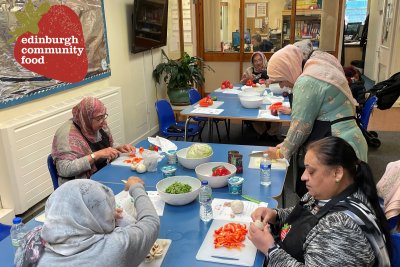Blogs • Children's Food Campaign
Consumers are ready for food companies to change their recipes
In this week’s Recipe for Change guest blog we hear from Shefalee Loth, Nutritionist and Principal Researcher at Which? and a Sustain Trustee. She shares the role that food and drinks companies can play in producing tasty, affordable food that doesn’t cost our health.

All of our consumer research tells us people want to eat more healthily but there are many things that stop this happening including affordability, time and skills.
In an August 2022 Which? survey, just under half of people told us the cost of living crisis has made it harder for them to eat healthily. For those struggling the most financially, this increases to four in five.
People want the government, food manufacturers and retailers to do more to support them in making healthier choices.
Reformulation is one way manufacturers and retailers can do this. Companies regularly change their recipes and are able to innovate to make them healthier. This might be by reducing the levels of sugar, salt and fat in foods or by adding ingredients such as fibre to improve the nutrient profile.
A positive case study is the Soft Drinks Industry Levy (SDIL), sometimes referred to as the ‘sugar tax’. The levy is tiered and drinks with a sugar content of 5-7g per 100ml are charged 18p per litre whereas drinks with 8g or more sugar per 100ml are charged a higher rate of 24p per litre.
In advance of the April 2018 introduction, companies proactively reformulated their drinks to reduce the sugar content and avoid incurring the tax. As a result, the sugar sold in soft drinks has dropped by 35.4%. The effect on consumers is we’ve bought and consumed less sugar in drinks and incredibly, this has happened at the same time as soft drinks sales increasing.
Another good example of reformulation is the FSA UK salt reduction programme introduced in 2006. The programme set salt reduction targets for 85 categories of food including bread, breakfast cereals, bacon, cheese and ready meals and targeted retailers, manufacturers and caterers.
By 2016 people’s salt intakes were 8g a day, compared to 9.38g a day in 2003. However progress appears to have stalled as the National Diet and Nutrition Survey in 2018/2019 put salt intakes at 8.4g a day for adults in England.
There’s more to be done. We know companies make more progress when there are mandatory targets to meet. Many companies tell us they prefer mandatory targets as it creates a level playing field among their competitors.
Last summer Which? looked at the sugar content of popular iced coffee blends in high street coffee chains. We found products containing 48.5g of sugar in one drink. That’s 12 teaspoons of sugar and exceeds the maximum free sugar intake advised by the NHS of 30g a day.
While calorie labelling is required in-store, sugar content isn’t although it is listed on companies’ websites. And these drinks fall outside of the SDIL despite them containing more sugar than other drinks that are subject to it. That’s because they’re made on site and served in open cups. The syrups, often used in these drinks, are also exempt from the tax.
These loopholes don’t make sense and don’t help the consumer.
We would like to see the next government do more to make sure there are healthier options available to consumers, by incentivising food and drinks companies to produce healthy, sustainable and affordable food. This includes setting mandatory targets for sugar and salt reduction, enforcing a ban of HFSS advertising and promotions, and seeing more promotions on healthier foods.
Published Wednesday 27 March 2024
Children's Food Campaign: Better food and food teaching for children in schools, and protection of children from junk food marketing are the aims of Sustain's high-profile Children's Food Campaign. We also want clear food labelling that can be understood by everyone, including children.





